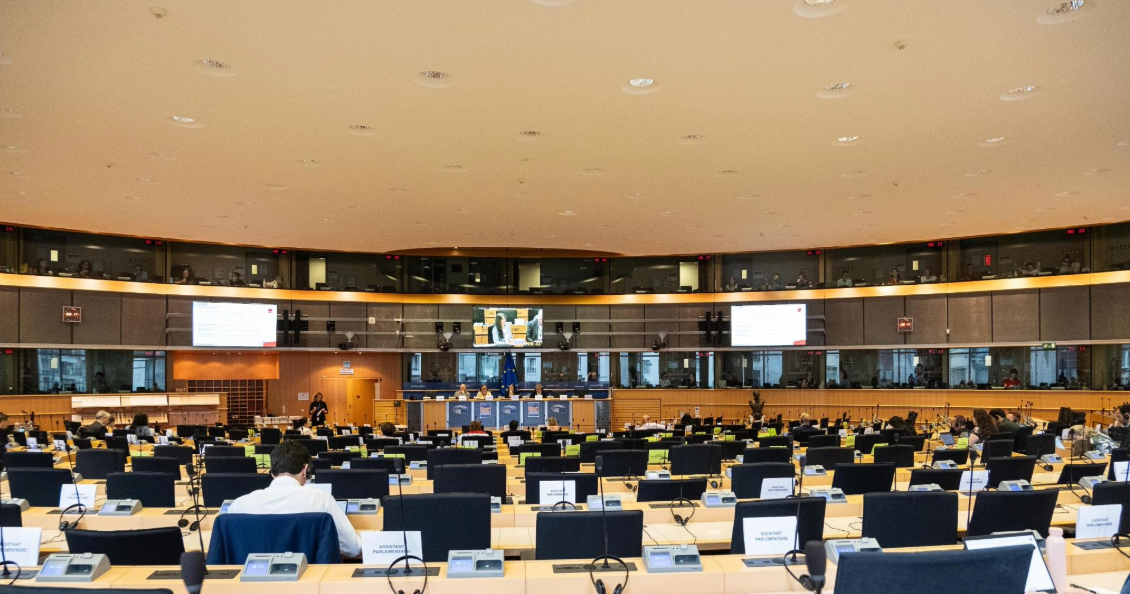HEALTHCARE IS NOT A COMMODITY! Hapvida workers launch national campaign to demand better working conditions in Brazil
20.05.24
On the morning of 16 May, carrying banners and posters with the slogan “Healthcare is not a commodity!”, member unions of the Healthcare Union Network UNISaúde, made up of UNI affiliates in Brazil, began a national campaign focused on Hapvida, the country’s largest private healthcare provider.
After merging with the Notre Dame Intermédica Group, Hapvida operates more than 80 hospitals and 350 clinics in multiple states, as well as administering a health insurance plan. According to its own website, the company is financially backed by multiple investors, including the New York-based BlackRock, one of the largest investment funds in the world.
The workers held protests and other actions in front of Hapvida facilities in different locations across Brazil, demanding an end to understaffing, a total ban on workplace harassment – especially by management, prioritization of patient care, rights and respect in the working environment and to stop using the Electronic Patient Record (PEP) in a way that dehumanizes patient care.
“It’s a very difficult situation! Workers are overloaded and experiencing harassment by management. They fired more senior staff to hire new employees, who don’t stay because they can’t stand the pressure and low salaries,” said Maria Josefina “Teca” da Silva Souza, Treasurer of SINDEESS (Healthcare Employees Union of Belo Horizonte and Region), and administrative assistant at Lifecenter Hospital, acquired by Hapvida after its merge.
Da Silva Souza confirms that the situation has worsened since the country’s largest healthcare company assumed control of the hospital. The implementation of the PEP, she says, is “inhumane”, as workers in each department are required to meet time- and numerically-based goals around patient care, administration of medication, and changing linens, among other tasks.
“We’ve been made to compete as if we were machines, and many workers can’t meet the deadlines. This is really impacting workers’ mental health,” she laments.
To make matters worse, Hapvida, an extremely profitable company – according to the latest balance sheet released by the company – is one of the few in the Belo Horizonte region, according to da Silva Souza, that doesn’t comply with the national nursing minimum wage law.
In Brazil, Law 14.434/22 sets the minimum wage for nursing staff at R$4750 (USD $836.26) per month for nurses, R$3325 (USD $585.40) for nurse technicians, and R$2375 (USD $418.13) for nursing assistants and midwives.
Daniele Nazário da Silva, who works as a nursing assistant at the Antonio Prudente Hospital in Fortaleza, Ceará and is a Director of SindSaúde Ceará, also confirms that a primary target of worker complaints is the PEP. “This electronic system works like a traffic signal: if it’s green, okay, if it’s yellow, it’s a warning and, if it’s red, the worker can be suspended. But, often, it is not possible to abandon a patient who has serious problems that require attention because of an [electronic management] system. If the patient is in cardiac arrest, how am I going to stop treating that person and start on someone else?” she asks.
According to the President of SEEB (Nurses Union of the State of Bahia), Alessandra Gadelha, Hapvida does not have a compliance program with a code of ethics and conduct to avoid situations of workplace harassment. “We already have had a somewhat conflictual relationship with Hapvida since 2017-2018, when we received a very high number of complaints regarding workplace harassment and lack of an adequate space for nursing staff to rest during the workday”, she says, referring mainly to one of the company’s hospitals in the state, Teresa de Lisieux.
Beatriz Lúcia de Castro, Director-President of Sinsaúde Campinas, Jundiaí subsection (São Paulo state), says that healthcare workers at Hapvida, especially those in nursing, work under serious conditions of understaffing. “At Hospital e Maternidade Paulo Sacramento, in Jundiaí, they are very overwhelmed by the number of patients they have to care for at the same time”, says Beatriz. “There are days when only one employee is there with 10, 15 patients to provide all the assistance until they are admitted. The overload is too much for them,” she says.
Last month, the Healthcare Union Network UNISaúde sent Hapvida a letter requesting negotiation around the above issues. To date, there has been no response from the company’s management. For this reason, healthcare workers have launched a national campaign, stating that they will continue pushing until the company meets their demands.
UNI Americas


